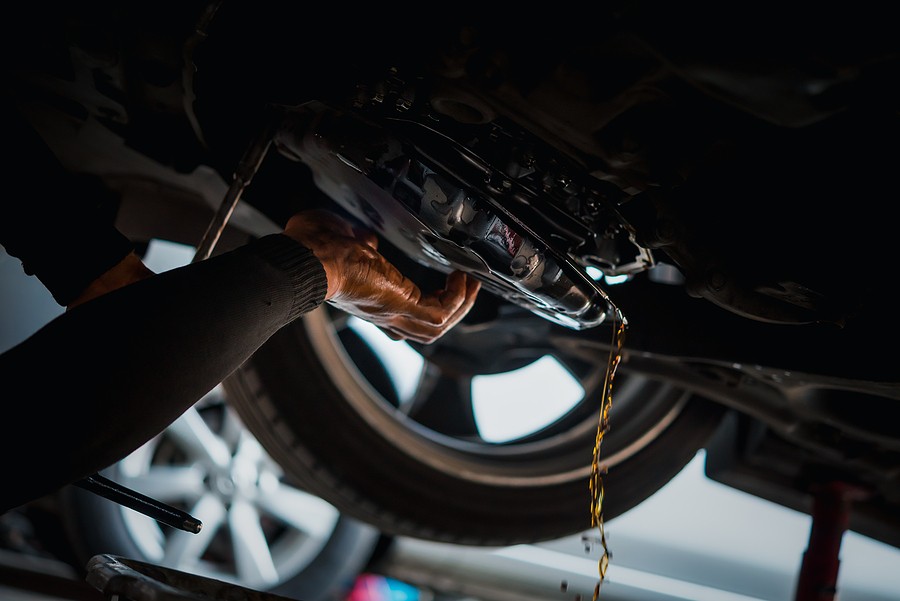If you're searching for “how to know if a transmission is bad,” look for one of the following 10 signs:
- Rough gear shifting
- Slipping gears
- Strange noises
- Fluid leaks
- Dashboard warning lights
- Weird burning smell
- Inability to go to gears
- Loud noises when neutral
- Clutch dragging
- Unresponsive gears
The transmission is one of the core components of any vehicle. It's responsible for transferring the energy from the engine to the wheels so that the vehicle uses the right energy according to the situation without wasting energy.
When the transmission fails, it might prevent you from driving your car completely. However, some early signs could help you identify major transmission problems before they occur.
This article provides ten important symptoms to help you ask, “How do you know if a transmission is bad?” You must address these symptoms as soon as possible to avoid dealing with situations where you must replace the transmission completely.
How do we know if a transmission is bad?
When the transmission fails, it leads to some symptoms that could help you pay close attention to what's going on internally in your car. Automotive experts typically recommend never to ignore any of these symptoms because if you don't address them as soon as possible, you can deal with significant problems that could cost you thousands of dollars on repair.
In general, a failing transmission might cause one or more of the following symptoms:
1- Rough gear shifting
Whenever your transmission is failing or about to fail, you'll see it immediately whenever you try to shift gears. This gear shifting will happen roughly and not as smoothly as to it. You won't monitor or notice this if you're driving an automatic transmission, and that's why the symptoms will be clearer if you're driving a manual transmission.
2- Slipping gears
Not only rough shifting but also slipping gears is another common symptom of a failing transmission. When this happens, you'll see that your car cannot stay in the desired gear, which leads to trouble in driving and might also cause some additional stress on the vehicle.

3- Strange noises
Depending on the status of your transmission failure, you might start noticing some weird noises. These are more like whining, clunking, or humming in some scenarios. You'll most likely notice that the noise is coming mostly from where the transmission is located because these could also be linked to other issues in your car.
It's important to note that whenever you notice any of these symptoms, you have to address them regardless of where they're coming from. Typically, the noises are just ways of calling you to address internal problems in your car. The more you ignore them, the more severe the problem becomes and the harder it gets to handle or fix them.
4- Fluid leaks
Some car owners reported noticing fluid leaks from the transmission location when they had a failing transmission. The fluid is most likely a transmission fluid, and when this happens, it can lead to severe symptoms and other problems that might even cause significant damage to the vehicle gears.
Depending on your transmission type, the transmission fluid might be responsible for only lubricating the internal components in a situation where you have an automatic transmission; still, in other scenarios, it might be involved in how the transmission operates if you're driving a vehicle equipped with a manual transmission.

5- Dashboard warning lights
It's always a good idea to pay attention to the dashboard lights because those can bring your attention to internal problems you're not noticing. That's why when the transmission is failing or about to fail, you'll see some dashboard warning lights, including a check engine light, although it might sound like a different problem with a different component.
Depending on your vehicle type, You might notice a transmission light illuminating. When this happens, it's another way to tell you that the transmission is unhealthy and something is going on internally that you must address immediately.
6- Weird burning smell
When the transmission is stressed out and has internal problems, you might notice that it's getting overheated; it might even cause some heat to the rubber components around it, which might be translated as a burning smell coming from the transmission site.
Like the weird noises, you must never ignore any weird smells from your car, regardless of their cause. Sometimes, even these smells might be sweet, like Maple syrup, indicating a significant problem in a core component: the cooling system.
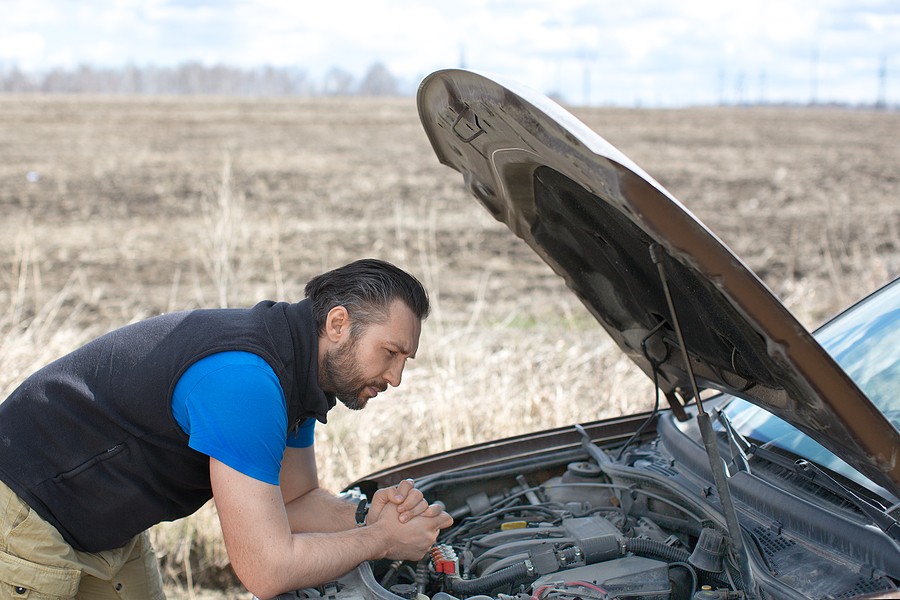
7- Inability to go to gears
When the transmission is not operating properly, you might find that your vehicle cannot switch gears. This becomes a problematic issue that might impact your safety, and that's why you never want to ignore this problem and should address it.
As we indicated before, the issues with gears are always clearer, and with vehicles equipped with a manual transmission, you feel the impact as you switch gears. For example, the more severe the problem, the harder it gets for you to switch gears and the harder it is for the gears to stay in place.
8- Loud noises when neutral
While the transmission might make weird noises every time you engage it when it's bad, sometimes you might notice weird noises when the vehicle is set to neutral. In this situation, your vehicle is not supposed to make any noises from the transmission side because it's disengaged.
If that's the case, you need to get your vehicle inspected immediately because your mechanic is the one who can determine whether you have a significant problem in the transmission that needs to be addressed immediately or not.
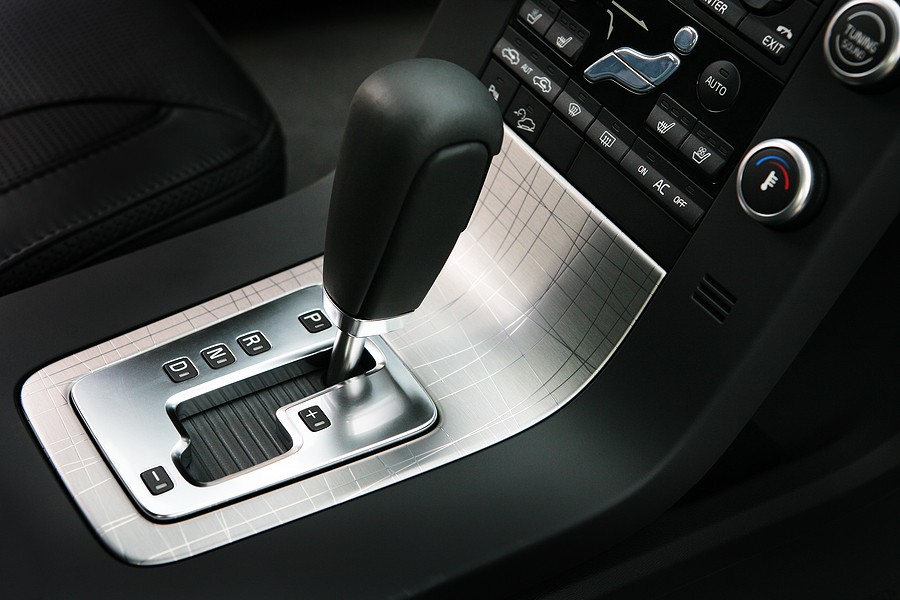
9- Clutch dragging
If you're driving a vehicle equipped with a manual transmission, you'll also notice some problems related to clutch dragging, which means that you cannot engage the clutch properly every time you try to switch gears.
Of course, if this is their situation, your safety might be impacted, not only you but also the safety of other people driving around you; therefore, you must address the problem as soon as possible.
10- Unresponsive gears
Finally, transmission might lead to unresponsive gears. No matter how much you try to engage the gears or allow them to stay in a certain location, they'll drag or not respond.

What do you need to do when you confirm a bad transmission?
When you notice any of the mentioned bad transmission symptoms, you must never ignore the problem and take it seriously immediately. You can check with your mechanic and have him thoroughly inspect the transmission and the other components.
You can also perform some visual inspections and see if you can see any visual leaks around the transmission; you can also use the OBD scanner to translate any potential check engine lights and hopefully determine whether it's related to the transmission.
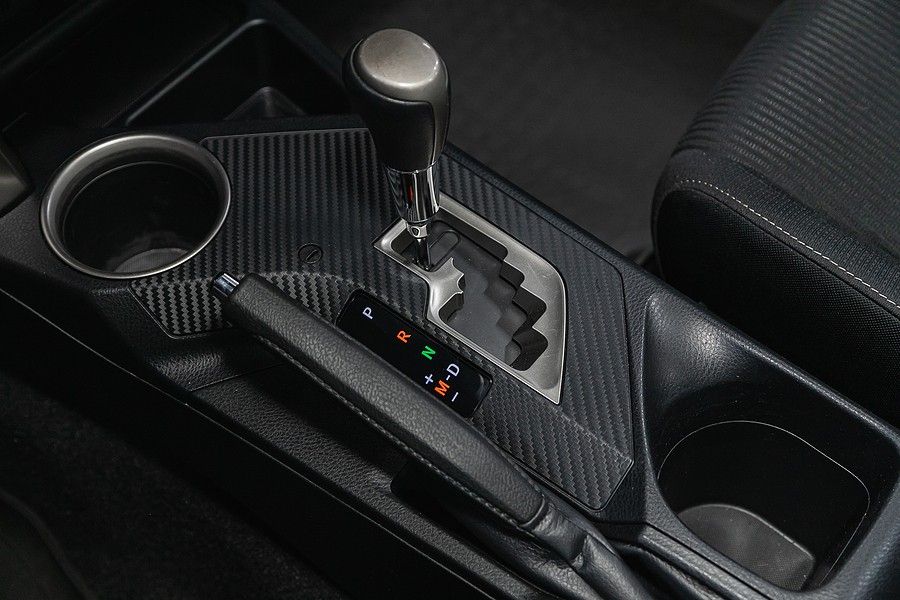
How much does it cost you to fix a bad transmission?
It all depends. Depending on your vehicle type and condition, transmission repairs can vary significantly. And also it depends on the severity of the problem itself.
For example, transmission repairs might vary between $300 and 1400 dollars. However, if you're looking for a complete transmission of placement, you will need to start thinking of $4000, if not more.
When it's not worth fixing your transmission?
As you noticed before, transmission repairs can go very significantly; if it gets to the point where you have to replace the transmission completely, it is critical for you, as a driver, to perform a thorough analysis and confirm whether it's worth fixing this vehicle or not.
As a rule of thumb, automotive experts typically recommend looking at the total repair cost and including any other repairs unrelated to the transmission. Once you have a final number, compare it to the vehicle value. If you feel that it's getting close to 75% or more of your vehicle value, that's when you have to give up on repair costs, and you should start thinking of replacing your vehicle completely.
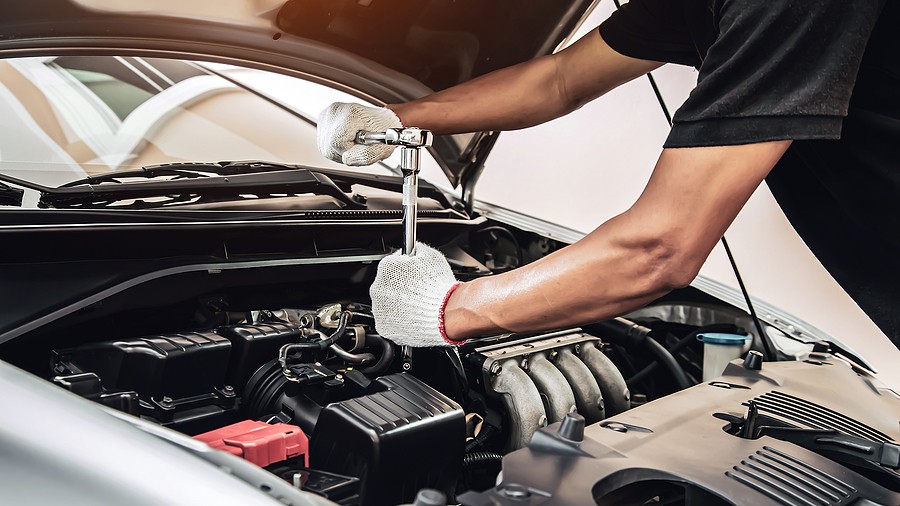
How do we know if transmission is bad? Final Thoughts
Your vehicle's transmission is a core component, and when it goes bad, it prevents you from driving your car and might even lead to some safety issues. As a car owner, you must understand how to determine whether the transmission is going bad. This could help you identify and fix the problem early without replacing major components.
This article highlighted ten important symptoms indicating a bad transmission. If one of these happens, you must address the problem immediately to avoid dealing with thousands of dollars in repair.
Confirming that your vehicle needs significant repairs could be the perfect timing for selling this car and buying a new one instead. If you're looking for someone to buy your car, considering its major problems, consult Cash Cars Buyer at 773-791-4363.
If you're interested in similar posts, we highly encourage you to visit our blog by clicking here!

